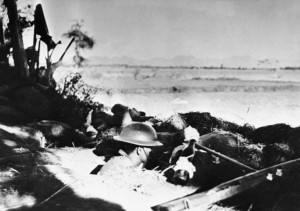Regarding the Inquirer’s editorial “A Terrible Forgetting,” December 13, 2015:
It is in our national interest to record the stories of WWII Filipino veterans and to teach the Filipino youth of the sacrifices that were made by their ancestors to bring the freedom that the entire world is enjoying today.
Bataan Legacy Historical Society was founded because of the lack of information here in the U.S. on the Filipino defenders of Bataan and Corregidor during WWII. Here in the United States, most books only mention “American defenders” even though Filipinos manned seven-eights of the main line of resistance. U.S. Army Forces in the Far East (USAFFE) consisted of 19,000 Americans, 12,000 Philippine Scouts (mostly Filipinos under American officers) and 119,000 Philippine Commonwealth soldiers.
Filipinos did most of the fighting and the dying. The world also needs to know about the atrocities that the Filipino nation suffered, especially during the Battle for Manila (February-March 1945). The liberation of the Philippines could not have happened if not for the guerrilla network that laid down the foundation for the return of the Allied Forces.
Here in the U.S. we are currently working with the California Department of Education to include the Bataan Death March and parts of WWII in the Philippines in the U.S. history curriculum for Grade 11. It is a long and arduous process, but it is something that needs to be done to recognize the sacrifices of the Filipino soldiers and the entire Filipino nation.
The Fall of Bataan is often remembered as the biggest single surrender in history. But its bigger significance is overlooked. Despite being abandoned early on during the war, the soldiers of Bataan, mostly suffering from starvation and disease, were able to delay the timetable of the Imperial Japanese Army of 52 days and fought for 99 days until they were forced to surrender on April 9, 1942.
But despite these sacrifices, the First Surplus Rescission Act was signed in February 1946 (the Second Surplus Rescission Act was signed a few months later), which deemed the service of the Filipinos as not being full-time, thereby denying them their veterans’ benefits. Every year since 1989 a bill has been introduced in the U.S. Congress to reverse this, but there is such a lack of political will to do this.
This year, we have a chance to restore justice with the introduction of H.R. 2737 and S. 1555, which asks for the Gold Medal for the Filipino veterans of WWII. This could be very well be our last chance to do this because there are only a handful of WWII veterans left. And so we must muster all the support that we can get to pass these bills.
This critical point of history must be taught not just in the United States, but especially so in the Philippines (and Japan). This is the greatest legacy of our nation and should be a source of pride for our people. Instead, it has been swept under the rug, forgotten in the name of economic prosperity. Although the war and the atrocities against the Filipino nation happened more than 70 years ago, these events are an important part of our history and moral fiber. Perhaps, that is why our politicians lack the moral fiber that is needed to work for the good of the nation.
And so we should ask the Department of Education and our President to teach these important lessons of history. We need a moral compass that is sorely lacking today. That is why each and every student in the U.S., Japan and especially in the Philippines must learn of these great sacrifices. We owe it to future generations of Filipinos to teach them of their greatest heritage.
1945 have collaborated in an Exhibition (September 12, 2015 to January 9, 2016) and Conference (October 24, 2015) in San Francisco and will continue to do so next year in another exhibition and conference in order to teach the world about the sacrifices of the Filipino people and WWII in the Philippines. We hope that we can all join one another in teaching the world about the great sacrifices made by the Filipino nation.
Cecilia I. Gaerlan is the executive director of the Bataan Legacy Historical Society.
Like us on Facebook
